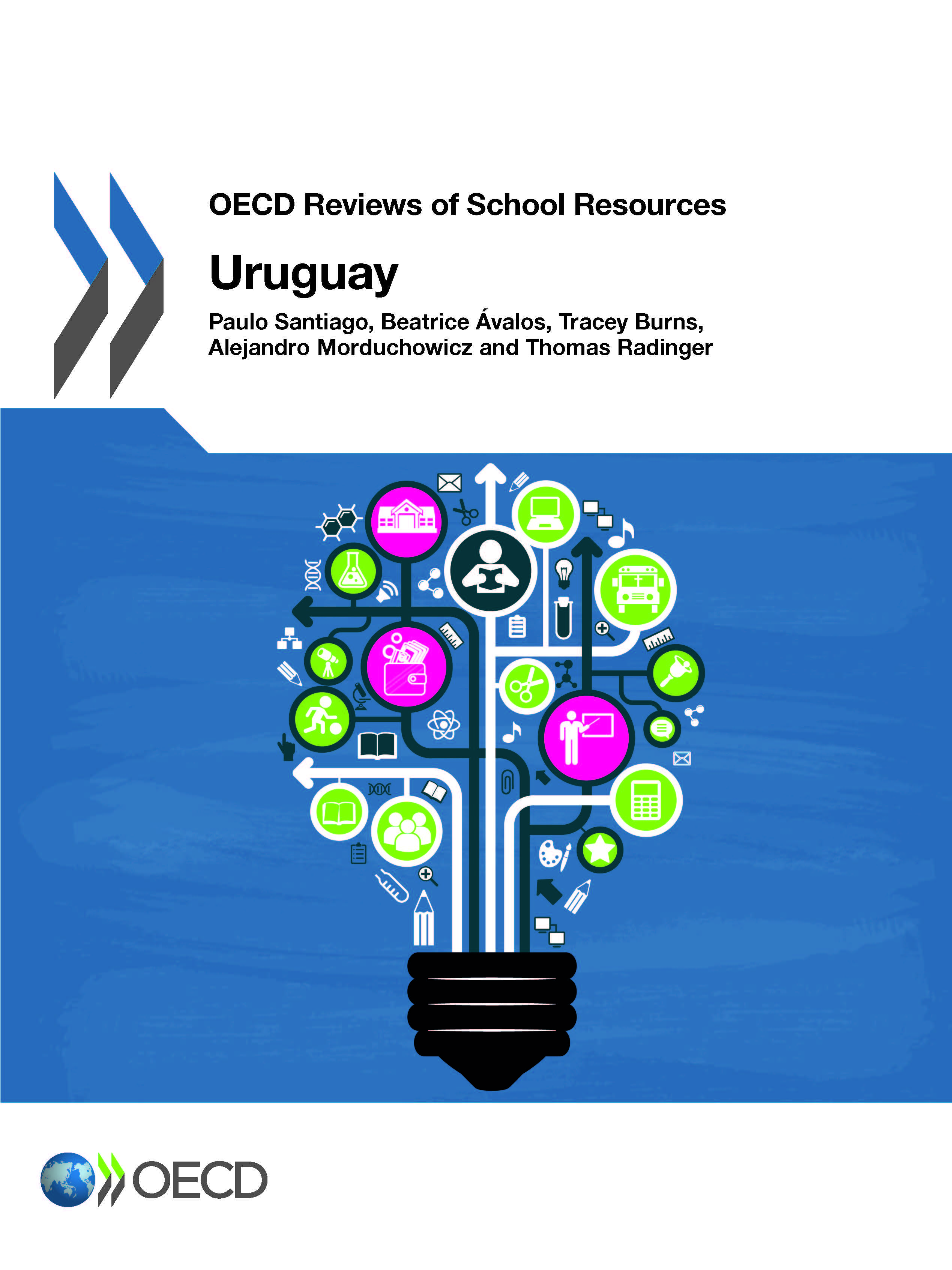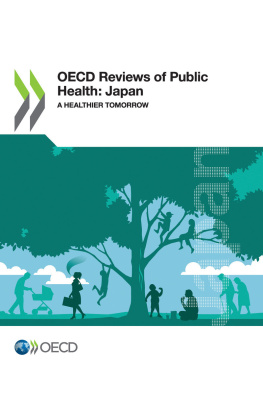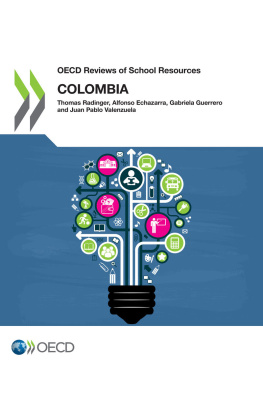OECD Reviews of School Resources: Uruguay 2016
Here you can read online OECD Reviews of School Resources: Uruguay 2016 full text of the book (entire story) in english for free. Download pdf and epub, get meaning, cover and reviews about this ebook. year: 2016, publisher: OECD Publishing, genre: Children. Description of the work, (preface) as well as reviews are available. Best literature library LitArk.com created for fans of good reading and offers a wide selection of genres:
Romance novel
Science fiction
Adventure
Detective
Science
History
Home and family
Prose
Art
Politics
Computer
Non-fiction
Religion
Business
Children
Humor
Choose a favorite category and find really read worthwhile books. Enjoy immersion in the world of imagination, feel the emotions of the characters or learn something new for yourself, make an fascinating discovery.

OECD Reviews of School Resources: Uruguay 2016: summary, description and annotation
We offer to read an annotation, description, summary or preface (depends on what the author of the book "OECD Reviews of School Resources: Uruguay 2016" wrote himself). If you haven't found the necessary information about the book — write in the comments, we will try to find it.
Unknown: author's other books
Who wrote OECD Reviews of School Resources: Uruguay 2016? Find out the surname, the name of the author of the book and a list of all author's works by series.
OECD Reviews of School Resources: Uruguay 2016 — read online for free the complete book (whole text) full work
Below is the text of the book, divided by pages. System saving the place of the last page read, allows you to conveniently read the book "OECD Reviews of School Resources: Uruguay 2016" online for free, without having to search again every time where you left off. Put a bookmark, and you can go to the page where you finished reading at any time.
Font size:
Interval:
Bookmark:

Flicitations et merci davoir tlcharg lun de nos tout nouveaux ePub en version bta.
Nous exprimentons ce nouveau format pour nos publications. En effet, mme si lePub est formidable pour des livres composs de texte linaire, le lecteur peut tre confront quelques dysfonctionnements avec les publications comportant des tableaux et des graphiques tout dpend du type de support de lecture que vous utilisez.
Afin de profiter dune exprience de lecture optimale, nous vous recommandons :
- Dutiliser la dernire version du systme dexploitation de votre support de lecture.
- De lire en orientation portrait.
- De rduire la taille de caractres si les tableaux en grand format sont difficiles lire.
Comme ce format est encore en version bta, nous aimerions recevoir vos impressions et remarques sur votre exprience de lecture, bonne ou autre, pour que nous puissions lamliorer lavenir. Dans votre message, merci de bien vouloir nous indiquer prcisment quel appareil et quel systme dexploitation vous avez utilis ainsi que le titre de la publication concerne. Vous pouvez adresser vos remarques ladresse suivante :
Merci !
Congratulations and thank-you for downloading one of our brand-new ePub-in-beta editions.
We're experimenting with this new format and, while ePub is fantastic for books with linear text, for books with charts, tables and graphs weve found some things may not work perfectly it depends on the device youre using.
So, for an optimal reading experience, we recommend:
- Using the latest version of your devices operating system.
- Reading in portrait mode.
- If large tables are tricky to read, try reducing the text size.
As this is an ePub-in-beta edition, we would be glad to receive feedback on your reading experience, good or otherwise, so we can improve for the future. When writing, please let us know which device/operating system you were using and the title of the publication. Write to:
Thank you!
Santiago, P., et al. (2016), OECD Reviews of School Resources: Uruguay 2016, OECD Reviews of School Resources, OECD Publishing, Paris, http://dx.doi.org/10.1787/9789264265530-en.

This report for Uruguay forms part of the OECD Review of Policies to Improve the Effectiveness of Resource Use in Schools (also referred to as the School Resources Review , see for further details). The purpose of the review is to explore how school resources can be governed, distributed, utilised and managed to improve the quality, equity and efficiency of school education. School resources are understood in a broad way, including financial resources (e.g. expenditures on education, school budget), physical resources (e.g. school infrastructure, computers), human resources (e.g. teachers, school leaders) and other resources (e.g. learning time).
Uruguay was one of the countries which opted to participate in the country review strand and host a visit by an external review team. Members of the OECD review team were Paulo Santiago (OECD Secretariat), co-ordinator of the review; Beatrice valos (Associate Researcher at the Centre for Advanced Research in Education at the University of Chile); Tracey Burns (OECD Secretariat); Alejandro Morduchowicz (Education Lead Specialist at the Education Division of the Inter-American Development Bank) and Thomas Radinger (OECD Secretariat). The biographies of the members of the review team are provided in . This publication is the report from the review team. It provides, from an international perspective, an independent analysis of major issues facing the use of school resources in Uruguay, current policy initiatives, and possible future approaches. The report serves three purposes: i) to provide insights and advice to Uruguayan education authorities; ii) to help other countries understand the Uruguayan approach to the use of school resources; and iii) to provide input for the final comparative analysis of the OECD School Resources Review.
The scope for the analysis in this report includes early childhood education, pre-primary education and school education. At the request of Uruguayan authorities, the focus areas of the Review of School Resources in Uruguay are: i) the governance of school resource use, including the role of school leadership; ii) the funding of school education (including planning, distribution, incentives and monitoring); and iii) the teaching profession. The analysis presented in the report refers to the situation faced by the education system in March 2015, when the review team visited Uruguay.
Uruguays involvement in the OECD review was co-ordinated by the National Institute for Educational Evaluation (INEEd). The national co-ordinators were Cecilia Llambi, then Associate Researcher at INEEd, from December 2013 until August 2015; and Cecilia Oreiro, Researcher at INEEd, from August 2015 onwards. An important part of Uruguays involvement was the preparation of a comprehensive and informative Country Background Report (CBR) on school resource use authored by Cecilia Llamb (Co-ordinator), Luca Castro, Melissa Hernndez and Cecilia Oreiro from the National Institute for Educational Evaluation (INEEd). The OECD review team is very grateful to the main authors of the CBR and to all those who assisted them in providing a high-quality informative document. The CBR is an important output from the OECD project in its own right as well as an important source for the review team. Unless indicated otherwise, the data for this report are taken from the Uruguayan Country Background Report. The CBR follows guidelines prepared by the OECD Secretariat and provides extensive information, analysis and discussion in regard to the national context, the organisation of the education system, the use of school resources and the views of key stakeholders. In this sense, the CBR and this report complement each other and, for a more comprehensive view of the effectiveness of school resource use in Uruguay, should be read in conjunction.
Font size:
Interval:
Bookmark:
Similar books «OECD Reviews of School Resources: Uruguay 2016»
Look at similar books to OECD Reviews of School Resources: Uruguay 2016. We have selected literature similar in name and meaning in the hope of providing readers with more options to find new, interesting, not yet read works.
Discussion, reviews of the book OECD Reviews of School Resources: Uruguay 2016 and just readers' own opinions. Leave your comments, write what you think about the work, its meaning or the main characters. Specify what exactly you liked and what you didn't like, and why you think so.


